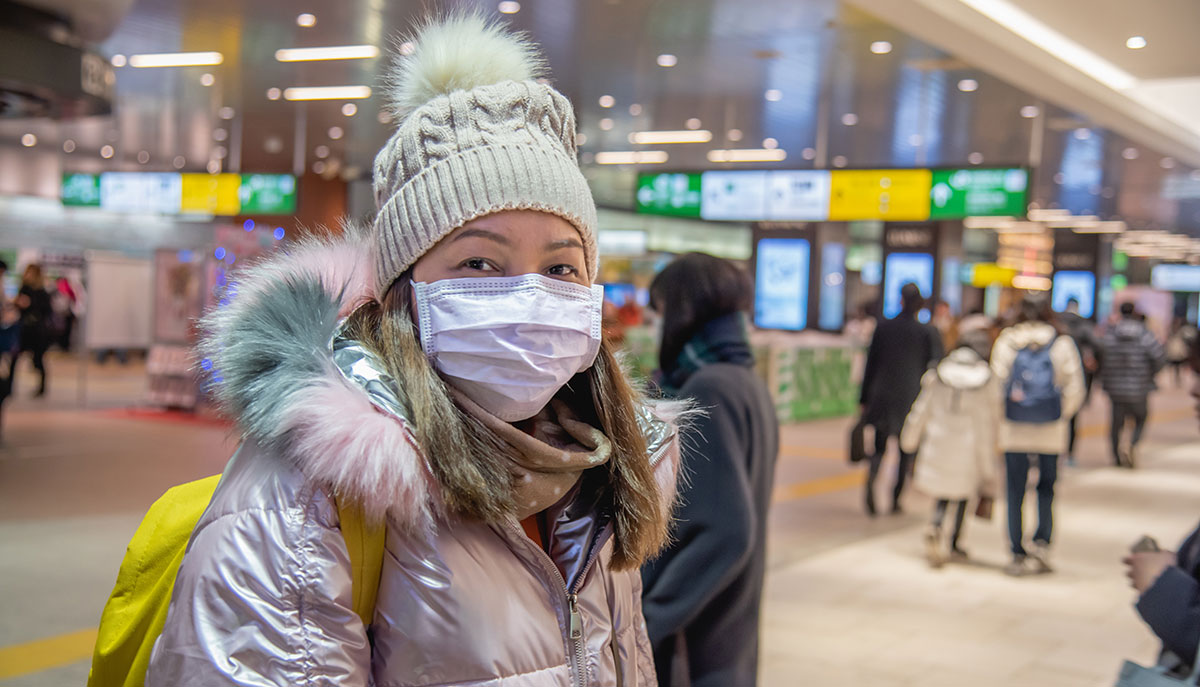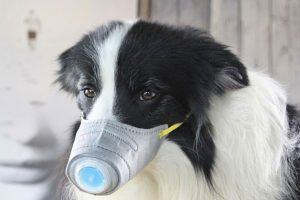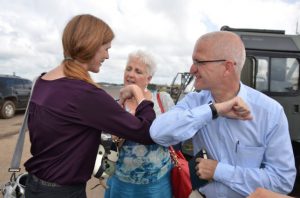Saturday 29 February 2020

A surgical face mask in action
I am worrying about this coronavirus epidemic. It is not so much the virus but in how the message is being portrayed. About four weeks ago, when the news was beginning to come out of China that a new virus was wreaking mayhem, I thought it likely it would eventually reach UK.
I am a doctor, actually a surgeon, so am well used to keeping myself sterile, washing hands, wearing masks, and all those things that stop patients becoming infected. Consequently, I went onto Amazon to buy some masks. It was then I realised the world was in a state. Despite a mind-boggling selection, there were only a few masks available and even those were of dubious quality and took forever to be delivered. My guess was that China had gobbled the majority.
I bought five masks in the end, of FFP2 standard, when I was hoping to buy FFP3. FFP means Filtering Face Piece, and the higher the number the better the protection. Plus, the higher numbers are more expensive. These masks are mainly designed to filter dust. There are also the so-called N95 respirators. These are respiratory protective devices designed to achieve a close facial fit, which filter out airborne particles very efficiently. The N95 designation means that the respirator blocks 95% of fine test particles (0.3 micron), yet even these devices do not completely eliminate the chance of illness or death.
I am not persuaded that masks are any good at all for preventing infection, other than they remind you to keep clean. There are plenty of surgical specialties that operate without wearing masks and have done so for many years.
More than a decade ago there was some scientific research that suggested a facemask offered some protection against influenza. Hand hygiene was also said to be important when it came to avoiding the disease. If both were used, this reduced the infection rate by 10 to 50%. More recently, however, tests have been conducted between N95 respirators and medical masks but, interestingly, there was no significant difference between mask and respirator when looking at the incidence of laboratory-confirmed influenza. Canine lovers are taking things one step further – some are putting masks on their dogs.

Coronavirus dog mask (courtesy Sylar Pet Shop)
There are plenty of scientific papers that look into the efficacy of surgical masks. They are normally used to prevent the surgeon shedding bacteria onto a patient during surgery. For Covid-19, their purpose is back to front. The aim is that they should stop a deadly organism going the other way. Yet during surgery, it is possible to take cultures on the outside of a surgeon’s mask. Two hours into an operation, the surgeon’s skin bacteria can be found crawling around on the outside of the mask. Logic thus decrees that after two hours, a coronavirus could penetrate a mask in the opposite direction.
One of my family is talking about starting a new job next week, somewhere south of London, in Surrey. The job is only 30 miles from where a case of Covid-19 has just been reported. What do I say? The individual is more at risk of infecting others, parents in particular, than of perishing from the disease. The commute is from central London outwards in the morning to reach the job, although at least that is against the rush-hour. But there is all manner of disease when jammed shoulder to shoulder on public transport. All I have said so far is, “Be careful.”
If I read the figures from China correctly, and there are now plenty, as a man I have a higher chance of being infected than a woman. It appears that roughly 70% of cases at the moment are male and the remainder are female. My age (mid-60s) gives me a 3.6% chance of dying. If I was a woman there would be a 1.7% chance of death, although this would increase if I had a concurrent condition, particularly a respiratory disease or high blood pressure. My best hope is that Covid-19 will be well controlled now that it has arrived in UK. This hope is tempered by medical logic, that however much I rely on good fortune, the UK is destined for a drama.

The Ebola Handshake (Facebook)
I went to lunch near Cambridge with some former colleagues today. Surprisingly, we talked very little about Covid-19. I did notice that most did not wish to shake hands but were not making anything of it. Some would just nod, others would hold their hands in prayer and say, “Namaste,” while I preferred to touch elbows. This is the so-called Ebola Handshake, which stems from the Ebola crisis in West Africa in 2014, when no one kissed or shook hands. They simply touched bent right elbows. That is good enough for me.
There was one attendee, whom I much admire, who was coughing, snorting and spluttering throughout lunch. I wanted to ask why he had come, but the meeting had been organised four months earlier, so I guessed he felt obliged to turn up. I kept a good metre from him, sterilised my hands surreptitiously after I mistakenly allowed a formal handshake, palm to palm, when we first met. Through the meal, which itself was far from brilliant, I sat on the opposite side of the dining table, and as far away as I could. It is difficult to be friendly, but evasive at the same time. I do not think I achieved it. I am sure he had a very high class of virus but that was not the point.
With so few cases in the UK at the moment, I think it is unlikely that my colleague had Covid-19, but how might I tell? I have a long-held theory that anyone with an infection, be it cough, cold, influenza, even Covid-19, likes to be in company and snuggles up to others as closely as they can. My colleague did keep very close. Perhaps sick patients are seeking reassurance, which is why they want company and contact.
It was a fair lunch and an excellent Cambridge meeting, but I was glad to make my escape.
